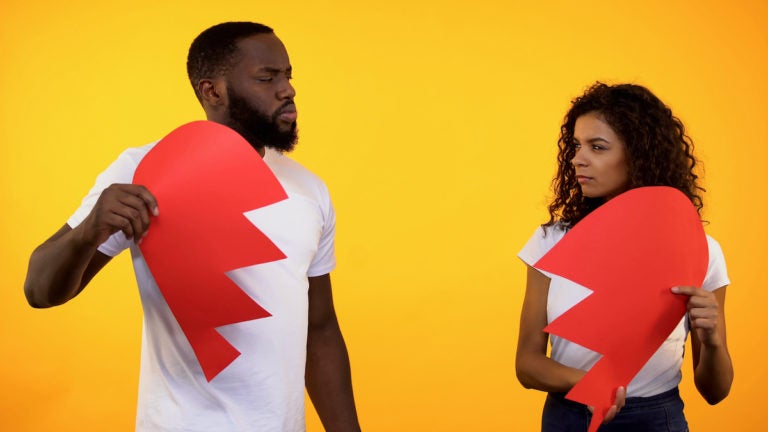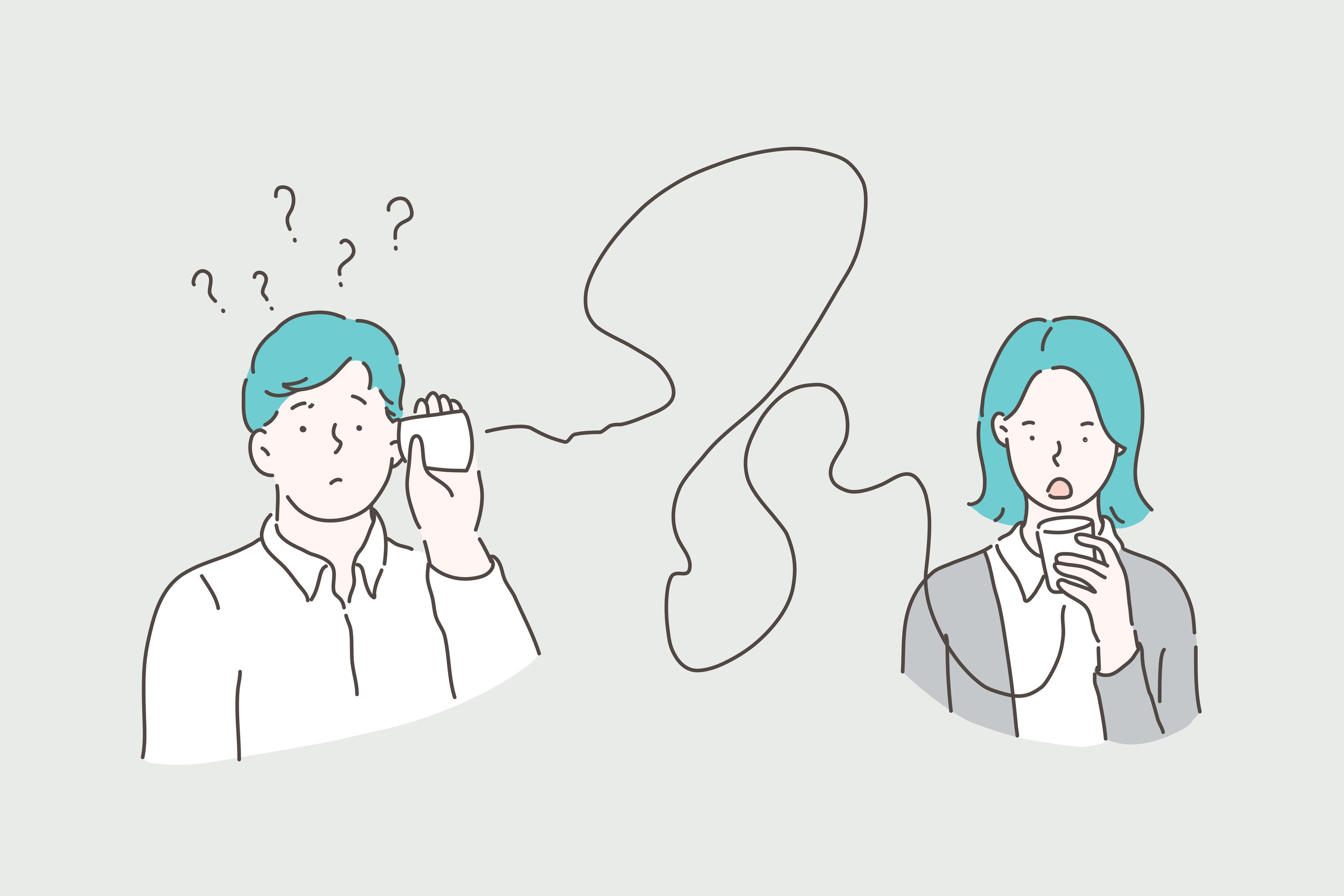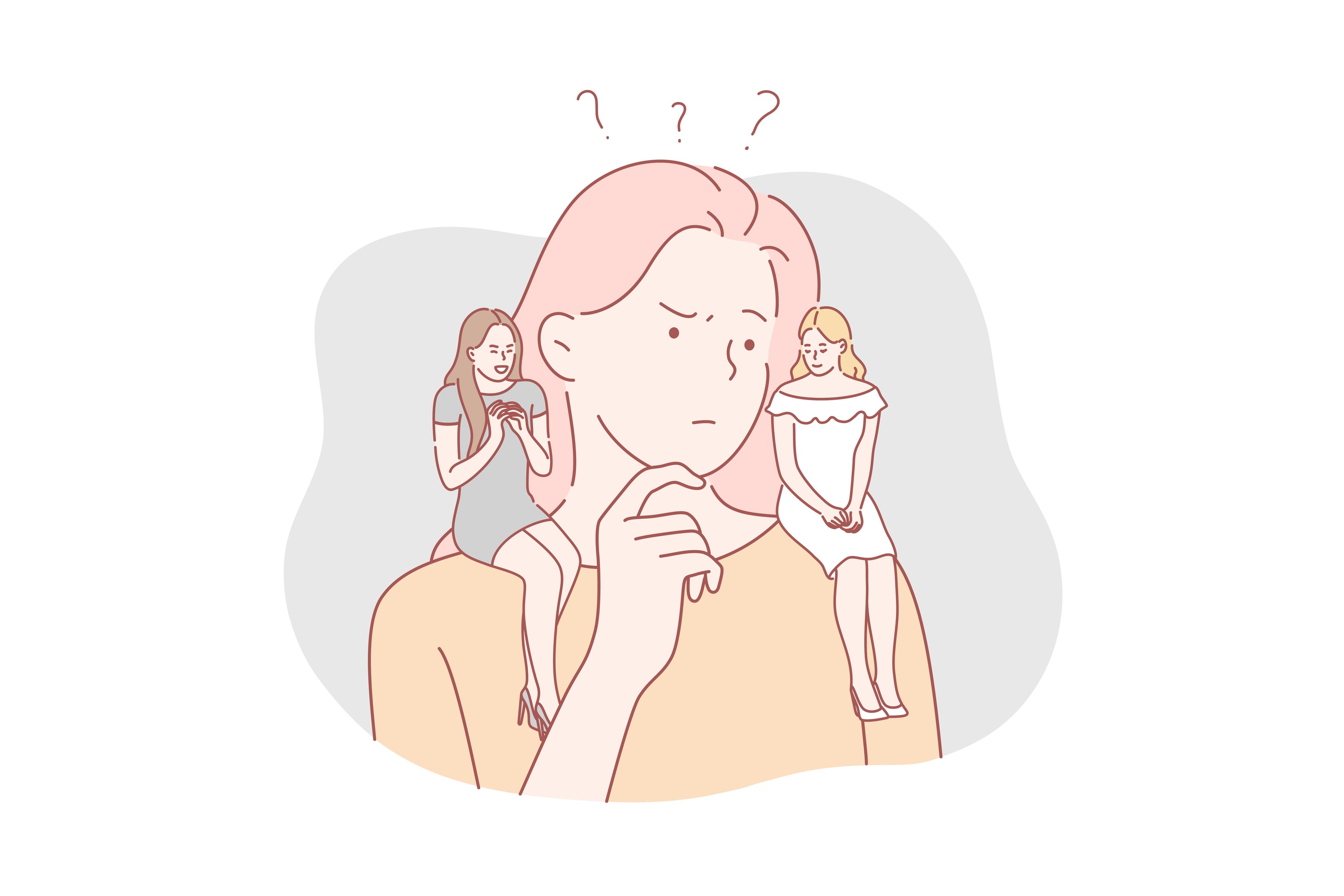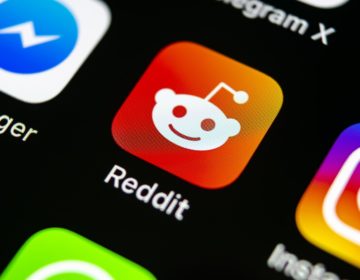The painful path of friend break ups
It’s normal for friendships to end. How can we approach that in a way that minimizes damage — and leads to healing?
Listen 11:14
It’s normal for friendships to end. How can we approach that in a way that minimizes damage — and leads to healing? (motortion/Big Stock Photos)
This story is from The Pulse, a weekly health and science podcast.
Subscribe on Apple Podcasts, Stitcher or wherever you get your podcasts.
In many ways, friendship is more important than ever.
A growing body of research shows it comes with physical and mental health benefits. Fewer people spend their whole lives in the same town as their relatives. Many millennials are delaying or rejecting marriage and traditional family structures. In the United States, a growing number of elderly folks are single and can’t depend on children for care. All in all, more people are relying on friends and chosen family as their main support networks.
Yet the ways we view and treat our friendships haven’t necessarily caught up. Many of us see friendship as the last thing on our to-do list, after family, partners, spouses, and work. We might not think to put in the same effort, or have the same standards, for our friendships as our other relationships.
Some friendships fizzle out naturally. You see each other less and less, then not at all. Maybe one person sends a message saying, “We should catch up sometime.” But it never really happens.
And then some friendships end in more brutal and explosive ways. But does it have to go down like that? Are there ways to prevent ugly friend ruptures?
‘I’ve had to shut my mouth for seven years’

Marria is an artist living in Philadelphia, and last August, they experienced the worst friend breakup they’ve ever had. (Marria asked that only a first name be used, for privacy.)
It was on a Tuesday night. Marria was winding down for the day, when they got an email from their friend. To protect this friend’s privacy, we’re calling her Pam.
Pam’s letter started like this:

Marria did not at all see this coming. “I was shaking,” they said. “I could not wrap my head around it. It was so out of the blue.”
The letter went on, picking apart things Marria had said, or posted online … even criticizing the name Marria had chosen for their dog. “There are very specific things taken from all seven years of our friendship,” Marria said, “and [it] goes into just very much attacking me, in different ways.”
Before this, Marria considered Pam a very close friend. The two of them lived together for three years of art school. “We really could talk about emotional stuff, so I do feel like we kind of got to a deeper place a little quicker,” Marria said.
After college, Marria and Pam grew apart a bit. Marria noticed it became harder to find time for each other. The friends had different backgrounds and upbringings, which might have played a role in driving them apart, Marria said. Plus, they said, there seemed to be tension or jealousy over a shared friend.
Still, the fact that Pam seemed to have felt so differently about their friendship for years really took Marria off guard. What happened here?
Ebb and flow

“There are not going to be tons of lifelong friends that we take along for the 70, 80, 90 years we’re on this earth,” said Suzanne Degges-White, a professor of counseling and counselor education at North Illinois University.
Degges-White studies how friendship changes over time. She said it’s normal for us to lose friends as life evolves. In particular, friendships are brittle around transitions: leaving home, going from college to young adulthood, partnering up, or having kids.
Each time your circumstances change, you kind of look around and take stock, intentionally or not. “Is this a friendship I want to keep investing in?” Degges-White said. “Is it someone who I value, or is it really a friendship that I need to let go?”
Katherine Foley, a reporter for Quartz, found herself asking those questions about a really close friend from college, with whom she had worked on the school newspaper. After graduating, the friends lived in different cities for a few years, then wound up in Washington, D.C., together. Foley was excited to resume a friendship.
But in those intervening years, she and her friend had grown in different directions. On paper, it looked like they should have been close — they had both built successful careers as science journalists — but something just didn’t mesh. A few times, Foley felt really judged by this friend.
“I would leave our interactions feeling kind of hurt,” she said. “I think it was particularly painful because the people that we grew into maybe kept misunderstanding each other.”
Foley said, for a while, she internalized her struggles to connect with this friend as failure on her part.
“What was just so hard is knowing that we had been so close at this one point in our lives, and feeling like we really should be able to be close, but we just weren’t,” she said. “I spent a lot of time really beating myself up over it.”

Though it’s hard to accept, some friendships maybe aren’t worth repairing, Degges-White said, because we all have limited time and emotional energy.
Researchers have even tried to quantify those limits. Dunbar’s number, named after Robin Dunbar, a British anthropologist, suggests that humans can comfortably maintain stable relationships with about 150 people. These could be people “you see at work, you see in your organizations you belong to, you see at spin class,” Degges-White said.
A lot of these are what researchers call ‘dormant’ or ‘commemorative’ friends, said Julie Beck, a senior editor at The Atlantic.
Dormant friends are those you don’t talk to regularly, but whom you’d grab a drink with if they were passing through town. Commemorative friends are people you have affection for, or friends from long ago, whom you might never talk to again, but whose updates you enjoy seeing on Facebook.
Think “your Little League team captain,” said Beck, who runs a series called the Friendship Files, in which she interviews friends about their friendships.
Then there are your active friends, or friends you’re regularly in touch with. Of these, some are your close friends: the ones you feel deep affection for, intimately trust, and with whom you have a mutually supportive relationship, in which you help each other out.
This number, at any given time, is much lower, according to Degges-White. “In my research, I’ve found that people who are most happy have around three to five friends,” she said. “Really, I think that’s all we have the energy to support.”
But none of these numbers are hard and fast, Degges-White said. After all, how do you quantify something as complex as friendship?
Indeed, researchers have found again and again that people define friendship differently. One study even found that only 50% of perceived friendships are reciprocal, meaning both people consider each other friends.
So friendship is a tricky beast, Degges-White said, and it helps to remember that.
“Friendships are about growth, dynamism, and realizing that they’re going to ebb and flow,” she said.
Crossing the line

Still, most friendship endings happen as a gradual fade, not necessarily a permanent rupture or a dramatic breakup letter.
But Jan Yager, a sociologist and friendship coach in Connecticut, said plenty of people do reach a breaking point, either because of a singular event — a major breach of trust — or because of an accumulation of little betrayals and misunderstandings. This might be one person not reciprocating, or someone feeling disrespected, again and again.
“In my book Friendshifts, I use the term ‘crossing the line,’” Yager said. “It just is a line someone’s crossed, and it’s very hard for the friend who feels betrayed to emotionally forgive.”
Yager said it’s valid to hit a point of no return with a friend. But she pointed out that, sometimes, cooling off and direct communication can help. After all, that’s what we do with our romantic partners. Long-term intimate relationships don’t tend to end out of nowhere. We have multiple conversations. We put in lots of effort to try to work things out.
For some reason, we don’t do the same with our friends.
“There’s this narrative out there that friendships should just flow,” said Miriam Kirmayer, a clinical psychologist and friendship expert in Montreal. “That [friendship] should just be easy, and that we shouldn’t necessarily need to communicate about the difficult things or experiences that we’re having.”
There are some social expectations that friends should just be fun or polite with each other — that we shouldn’t be “too much” with friends, Kirmayer added.
“People are often very hesitant to have those conversations with their friends,” she said. “To say, ‘look, I’ve noticed that we’re growing apart,’ or ‘here’s what I’m finding difficult,’ or ‘here’s what my needs are and here are the ways that I’m not feeling as though those are being met.’”
“I see that people overestimate the likelihood of those conversations going badly or poorly,” she said, “when really those can often be a means not just for problem solving, but for closeness.”
To ghost or not to ghost?

Kirmayer does think writing a letter can be helpful. She often encourages her clients to do that. But she tells them not to actually send the letter.
“I think the goal of those kinds of letters should either be to process our own feelings and decide that we’re OK with the place that we’re in,” she said, or “prepare [us] to have those difficult conversations, and come into it feeling as though we know what we want to say.”
When Pam sent her letter to Marria, she gave explicit instructions for Marria not to respond. To Marria, it seemed like Pam had no faith that the two of them could work things out, and that didn’t feel like how friends should treat each other.
“A huge part of this letter that was such a shock and so hard for me was that nothing had been talked about,” Marria said. “I just feel like the friendship could have been salvaged if we had maybe talked about it.”
When the situation between Marria and Pam was described to Shainna Ali, a mental health clinician and educator in Florida, Ali said it could be helpful to think about two opposite scenarios, in trying to understand how Pam’s letter took Marria by surprise.
“The first is, is it because you were not attentive to the relationship?” she said. “Maybe there were hints provided, maybe the friend provided effort in addressing this with you, and you may have missed those signs.”
This isn’t to place blame, Ali said, but just to consider that one person may have thought the signs were clear, and the other person totally missed them.
Or, the letter really could have come out of nowhere. “There was no proactive communication,” Ali said. “No hints dropped, no boundaries clarified.”
Ali said sometimes people “ghost” because they fear conflict, and jumping ship seems like the easy way out. In reality, she said, ghosting can be painful and anxiety-inducing on both ends.

If you’re thinking of ending things with a friend, it’s worth really thinking through it, Ali said. “Take a moment and step back.”
Think about the entirety of your relationship, and remember that your friend is complex, like all of us. When you zoom out, does the good outweigh the bad? If the friendship goes way back, are there memories you would miss sharing with someone?
“Could you be missing some of these other times that the friend has been there for you, that has supported you, that has stood up for you?” Ali said.
Also, think about your own role. Is there anything you could have done differently?
In the end, you might still decide to end the friendship. But you’ll have started down a path of reflection and processing. And if the relationship was meaningful to you, there will be a grieving process.
“In order to heal through it, you have to go through it,” Ali said. “So you’d have to really acknowledge the amount of pain that came from it. The misunderstanding, the disrespect, the pain. Then you can heal through it.”
How do you save a dissolving friendship?

For Marria, it took some time to get over the letter. “Many mornings, I’d just wake up thinking about it, and then be like, ‘Oh yeah, it is real.’”
In the following weeks, Marria checked in with close friends and asked if any of Pam’s letter resonated with them. “I didn’t want to take this letter and immediately become defensive and not believe that there was any truth to it.”
Marria’s friends were supportive. Some even got angry at Pam. Those conversations helped put Marria at ease.
Marria also had a past experience to draw from, with another friend named Meghann (who asked us not to use her last name for privacy reasons.)
Marria and Meghann met in college and bonded quickly over camping, Soulja Boy, and a butts and guts workout class. After graduation, the friends decided to move to Philadelphia together.
By that point, the two were super close. Meghann “knew all my family members, she had come to Thanksgiving at my aunt’s house. Like, fully integrated into my world,” Marria said.

But over Meghann and Marria’s first year of living together, their relationship started to shift. Meghann started to hang out with new friends, without inviting Marria. Marria, in turn, felt confused and excluded.
Tension built, and the friends started to have less patience for each other. They got into arguments over mundane things.
For a year, Marria and Meghann tried to talk about what was going on. It was messy and confusing. “We both didn’t know how to explain what was really happening,” Marria said.
But slowly, the friends began to figure things out.
On their end, Marria realized that they weren’t just being clingy or jealous; they felt scared Meghann was pulling away from their friendship. Meanwhile, Meghann wasn’t actually wanting their relationship to be less close. She just needed a little more space, and wasn’t able to articulate right away, to herself or to Marria.
The friends decided to stop living together, but started having weekly dinners instead. Both of them showing up to those dinners, week after week, reminded Marria and Meghann that there was a lot of care and commitment in their friendship. Gradually, the bad feelings started to lift.
Meghann said, their friendship is deeper today because they fought for it.
“It’s like the thing, where going through a conflict and actually working through it, makes you stronger and closer,” she said. “Now I’m like, ‘Yeah, we can deal with anything.’”
“We can call each other out more,” Marria said.
“And when we really need that real, like fully, emotional support, it’s each other,” Meghann said.
“We’re friendship soulmates,” she added.
“Best friends forever,” Marria said.

WHYY is your source for fact-based, in-depth journalism and information. As a nonprofit organization, we rely on financial support from readers like you. Please give today.







